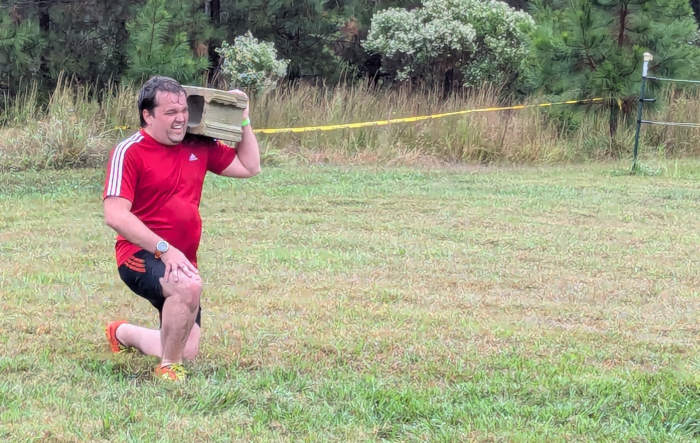In an exclusive conversation, newly minted Percona CEO Peter Farkas explains why the company’s open source-first approach still works — and how he plans to build on it across global teams and new database fronts.

There’s a new person at the top at the North Carolina-based database company Percona. A couple of weeks ago, the company announced that a former Percona employee, Peter Farkas, now occupies the CEO’s office.
The new role brings Farkas back to familiar territory. For four years he served as Percona’s director of support, leaving in 2016 to become co-founder (alongside Percona co-founder and then CEO Peter Zaitsev, and Mindaugas Zukas, CEO of Ivinco) of the open source support and consulting company Altinity. Since 2021 he’s been serving as CEO of FerretDB, a company he co-founded with Zaitsev and another Percona alum, Alexey Palazhchenko, to develop and maintain an open source alternative to MongoDB.
Soon after the announcement that he was taking the reins at Percona, I took advantage of an opportunity to have an email conversation with Farkas. I wanted to know about his plans and vision for Percona, and what I learned is something that every company developing or supporting any kind of open source software should learn, and imitate.
About Percona
The company that Farkas now heads was founded in 2006 by Peter Zaitsev and Vadim Tkachenko, and started off as a two‑person open‑source database consulting firm focused on performance and scalability issues around the MySQL database. By that time the database had been around for slightly more than a decade, and was firmly entrenched as the backbone of the internet — being the “M” in the LAMP stack that drove the internet.
The database, first released in 1995, was developed and marketed by MySQL AB, a company that developed a reputation for helping its customers build all sorts of applications on top of the open source MySQL database without the huge fees of traditional software vendors. Unfortunately, that ethical approach didn’t last forever, as the company started to focus more on revenues and customer retention than on empowering users. In addition, it began positioning MySQL as the solution to every database problem — even if it wasn’t — and reserving critical features for paid subscribers only.
Because of those issues and others, Peter Zaitsev and Vadim Tkachenko left MySQL AB in 2006 and co-founded Percona, a company that today develops free and open source server software for MySQL, MongoDB, and other databases. Its offerings are 100% compatible drop-in replacements for their community software versions but include features — still 100% open source — that are typically only available in expensive proprietary enterprise versions.
Percona’s New CEO
The first thing I asked Farkas was for an elevator pitch explaining what’s unique about Percona’s enterprise level support for open source database projects. His quick, simple answer was that Percona has always been different thanks to “a balance of independence and technical depth that is rare in the industry.”
Unlike other companies that specialize in a single technology or push their own proprietary versions, he said, Percona “does not build its business around locking customers into a single technology or platform. We support multiple open source databases — MySQL, PostgreSQL, Valkey and others — with deep expertise about all of them, because we believe our customers and users deserve choice and freedom.”
I asked him if anything would change at Percona, now that he’s in the driver’s seat. The short answer: nothing, we’ll just do more of the same, and better. In Farkas’ actual words: “the multi-database, open source-first model, and open choice is part of Percona’s DNA. It works, and will stay the same.”
Freedom to Choose
If you like openness you cannot keep it for yourself, and you want others to practice it too. That’s true by definition, and it’s also really important in these times when openwashing is everywhere, from fake “open hardware” to fake “open AI”, even by companies that were once open source champions like Red Hat.
After what I had read about Percona and heard from Farkas, I couldn’t help but ask whether Percona’s approach to databases could be extended to other sectors of the open source industry. About this, Farkas has no doubts: “Percona’s model could definitely work beyond databases.”
What Percona does, he said, is give organizations real freedom of choice in open source, without forcing them into a single vendor or proprietary ecosystem, by combining deep expertise across multiple open source technologies with reliable enterprise support.
According to Farkas, that’s an idea that could benefit many other tech areas.
“We can already see similar trends in fields like cloud infrastructure, observability, and AI tools,where companies use several open source projects together and need guidance to make them work smoothly,” he said. “Few companies have built the kind of broad, neutral, and trusted foundation that Percona has in databases. That is what makes Percona’s experience unique and valuable to the wider open source world.”
Location, Location, Location
Farkas said that being headquarted in the US, especially in a tech-friendly region like Raleigh-Durham’s Research Triangle Park, is beneficial for Percona, because being neighbors to tech companies like Red Hat opens the possibility for local conversations and partnerships, and also brings to the table a talent pool of professionals who understand open source.
However, Percona’s focus — both culturally and operationally — is and will remain global.
“It lets us hire the best talent wherever they live, and also enables us to provide services with a better understanding of cultural differences and expectations across continents and regions,” Farkas said. “Having people in over 50 countries is one of our bigger strengths.”
This approach is aided by the fact that Percona doesn’t require most of its workforce to work in the office and only in the office every day. Percona has had a remote-first approach since long before COVID-19, and plans to keep it.
Farka’s plan and vision to basically stay the course sounds quite good, both for Percona’s customers and its employees. I sincerely wish Percona success, but what I really care about and really hope to see happen is many more open source companies adopting the same approach.

Marco Fioretti is an aspiring polymath and idealist without illusions based in Rome, Italy. Marco met Linux, Free as in Freedom Software, and the Web pre-1.0 back in the ’90s while working as an ASIC/FPGA designer in Italy, Sweden, and Silicon Valley. This led to tech writing, including but not limited to hundreds of Free/Open Source tutorials. Over time, this odd combination of experiences has made Marco think way too much about the intersection of tech, ethics, and common sense, turning him into an independent scholar of “Human/digital studies” who yearns for a world with less, but much better, much more open and much more sensible tech than we have today.








